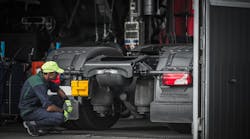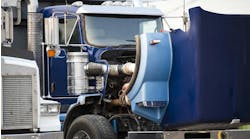The demand for technicians continues to increase. According to Tim Spurlock, co-founder and CEO of American Diesel Training Centers, the demand for technicians is significantly larger than the supply.
Speaking at a recent NationaLease meeting, Spurlock said there are a number of reasons for this problem, including what he calls “the college for all mentality,” in addition to the growth of well-paying home-based jobs. There are a number of macro reasons for this shortage, too, including the fact that there has been a decrease in the number of people in the U.S. between the ages of 20 and 64 as well as the number of people immigrating to the U.S.
See also: Mike Rowe on diesel technician shortage: 'The math ain’t good'
Whatever the reasons for the shortage, the reality is that trucking needs technicians, and that need is not likely to go away. Therefore, we need to find ways to get more people to work in service departments.
Spurlock shared his ideas for doing just that, starting with some fundamentals like changing the way you identify, interview, and develop new talent. It is imperative to eliminate barriers to interviewing. Speed is key to hiring, so try to limit the time between application and interview. Spurlock suggested conducting interviews by phone or video to help speed up the process. He recommended putting one or two people in charge of the hiring decision.
Perhaps Spurlock’s most novel suggestion was to hire for attitude and aptitude rather than skill, planning on training the new hire yourself or outsourcing the training function. Training needs to focus on basic mechanical skills and tasks. Working with local schools to spot talent is a good idea, but you will still need a training or mentoring program in place. Training is not something that only happens in the early days of employment. Developing a multiyear training program allows technicians the opportunity to keep developing their skills.
See also: As technicians retire, training is more important than ever
Focus your training efforts on the top maintenance and repair events. Typically, maintenance and repairs fall into three categories: tires and related parts, preventive maintenance, and brakes and related systems. Those are the areas on which you should concentrate the majority of your training, although other types of repairs shouldn’t be neglected in training.
It doesn’t look like the technician shortage is going away anytime soon. The steps you’ve taken in the past to hire and retain technicians may need to be adapted to help foster more efficiency in the process. Review and revise your hiring process as needed to make it as streamlined as possible as you look for the right candidates and continue training them for success.
Jane Clark focuses on managing the member services operation at NationaLease as vice president of member services. She works to strengthen member relationships, reduce member costs, and improve collaboration within the NationaLease supporting groups.



